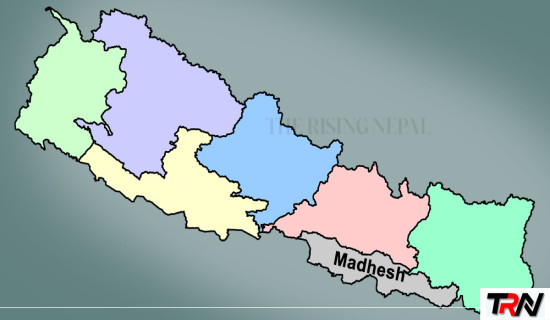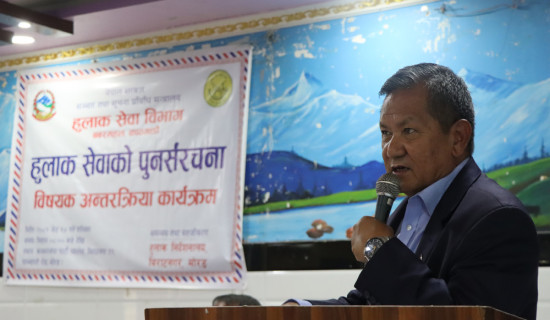- Saturday, 7 June 2025
Nepal's call for unified BIMSTEC disaster mechanism
Kathmandu, June 7: Home Secretary Gokarna Mani Duwadee has highlighted steps taken by Nepal in reducing disaster mortality, infrastructure retrofitting, localizing DRR strategies, and improving social protection standards.
He also urged for the creation of a unified BIMSTEC disaster mechanism to harmonize risk assessments, monitor Sendai Framework implementation, and establish a dedicated regional DRR fund.
At the High-Level UNDRR-BIMSTEC event under the eighth edition of the Global Platform for Disaster Risk Reduction (GPDRR 2025) that concluded in Geneva, Switzerland on Friday, Secretary Duwadee presented Nepal’s progress under the Disaster Risk Reduction National Strategic Plan of Action (2018–2030).
Organized by the United Nations Office for Disaster Risk Reduction (UNDRR) and hosted by the Government of Switzerland the biennial event held from June 2 to 6 saw the participation of more than 3,400 delegates from 166 countries across the globe.
The GPDRR serves as an important global forum where governments, UN agencies, civil society, academia, and the private sector converge to review progress, share insights, identify gaps, and forge pathways to enhance disaster resilience globally. This year's theme emphasized urgent, integrated action toward risk reduction, innovative financing, and inclusive governance to address escalating climate-induced hazards.
Similarly, Inspector General Raju Aryal of Armed Police Force highlighted the importance of community disaster volunteers and emphasized high-level training and community participation for effective disaster management. He detailed the establishment of Nepal’s Mountain Rescue Training School and disaster management training academy as vital steps toward national resilience. Aryal strongly advocated for collective global effort and inter-agency coordination, reinforcing that isolated actions are insufficient for managing disasters effectively.
At the Ignite Stage, Dr. Raju Thapa of DPNet under the National Platform for Disaster Risk Reduction (NPDRR) presented Nepal’s success story in cost-effectively adopting and localizing the Sphere Minimum Humanitarian Standards following major crises, notably after the devastating 2015 earthquake.
In the Ministerial Roundtable, Secretary Duwadee highlighted Nepal’s vulnerability to multiple natural hazards such as earthquakes, floods, glacial lake outburst flood and cloudbursts, exacerbated by climate change. He vividly illustrated this through the tragic cloudburst incident in Kathmandu in September 2024, which caused 56 fatalities and inflicted over USD 460 million in economic damages.
Highlighting a severe fiscal gap identified through recent assessments, Secretary Duwadee emphasized Nepal’s urgent need for innovative financial solutions, including catastrophe bonds and parametric insurance mechanisms tailored to the nation's distinct risk profile.
Secretary Duwadee also drew attention to the rapidly worsening climate crisis in the Himalayas, emphasizing that melting glaciers significantly threaten mountain communities. Referring to the recently held Sagarmatha Dialogue in Kathmandu, he reiterated Nepal's demand for global climate justice and better access to international climate finance tools like the Green Climate Fund, Adaptation Fund, and the Loss and Damage Fund. These resources, he argued, are important for building resilience and implementing long-term adaptation strategies.
In his address to the Multistakeholder Plenary, Duwadee elaborated on Nepal’s commitment to strengthening disaster governance through the establishment of the NDRRMA in 2019 and aligning national development policies with the Green Resilient and Inclusive Development (GRID) initiative. He highlighted the country’s achievements in conducting multi-hazard risk assessments, integrating community participation, and employing advanced technologies like artificial intelligence and real-time data systems to improve early warning and risk communication. The Secretary stressed the importance of inclusive disaster planning, ensuring marginalized groups have access to digital solutions informed by indigenous knowledge.
At the Multi-Stakeholder Forum on Investments in Reducing Risk and Building Resilience at GPDRR 2025, Dharam Raj Uprety of Practical Action Nepal emphasized the importance of risk-informed investments in achieving sustainable development goals.
In the multi-stakeholder plenary, Bivek Kharel from CDM-Nepal highlighted the need for urgent climate action in disaster-prone, low-emission countries, highlighting grassroots initiatives like community disaster plans, green jobs, eco-clubs, and nature-based solutions.
Neera Shrestha from ICIMOD, a panelist at the Learning Lab on Scaling Anticipatory Action, emphasized intergovernmental cooperation for effective regional disaster preparedness and response.
Similarly, innovation platform was exhibited by ICIMOD, Oxfam, and People in Need (PIN), where the Community-Based Flood Early Warning System (CBFEWS) was showcased. Various stakeholders visited the platform to learn from the experiences and best practices shared. Practical Action and Duryog Nivaran also presented in market place on their work, focusing on data intersectionality and gender in DRR.
Nepal’s inclusive participation drew extensive praise, prompting UNDRR head Kamal Kishore, in his closing remarks, to encourage delegates worldwide to learn from Nepal. Kishore shared significant global progress in disaster risk reduction, noting considerable decreases in disaster-related deaths and widespread adoption of national DRR plans. However, he highlighted the urgent need for increased preventive investment, recommending broader engagement from private investors, climate finance mechanisms, and national governments to close financing gaps.
Christian Frutiger from SDC delivered the Geneva Call for Disaster Risk Reduction at the closing session, outlining a clear roadmap emphasizing collaborative action, ethical use of emerging technologies, inclusive governance, comprehensive risk data collection, school safety frameworks, and scaled early warning systems. (RSS)

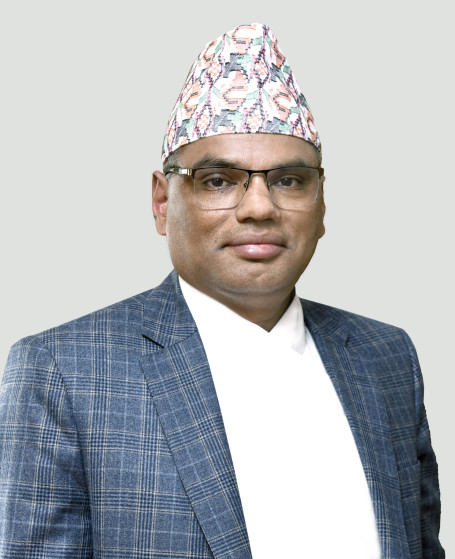

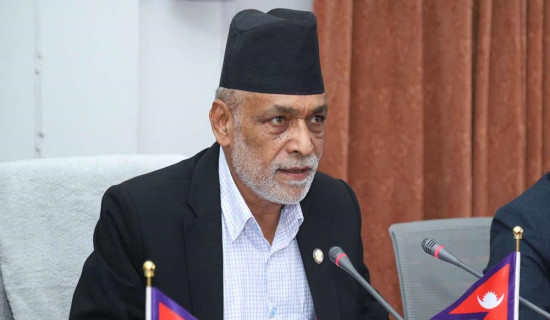
-square-thumb.jpg)
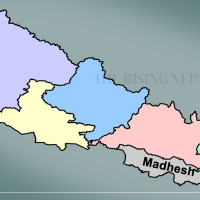
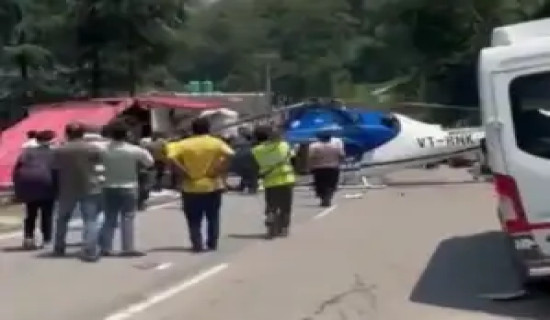
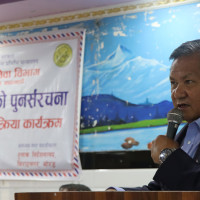

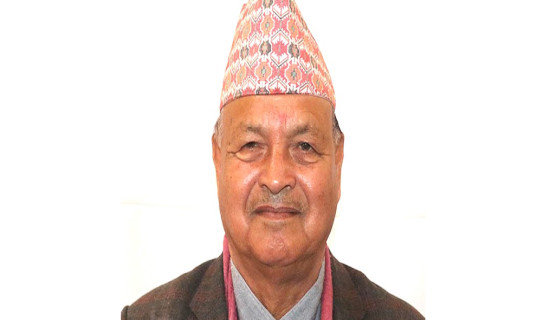


-original-thumb.jpg)
